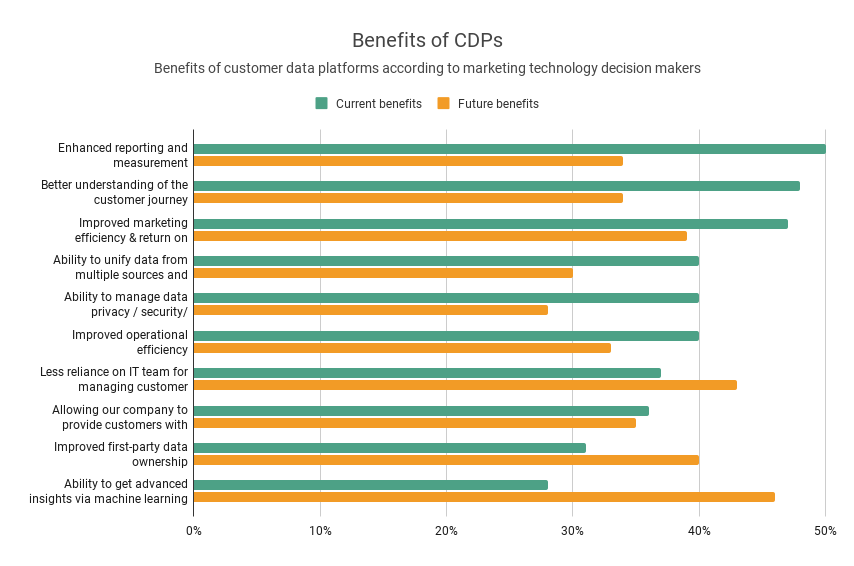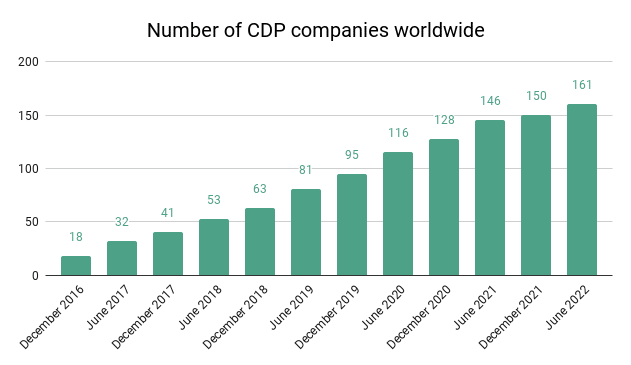What are customer data platforms (CDPs)?
Customer data platforms (CDPs) are software tools that allow businesses to collect, unify, and manage customer data from multiple sources in a central location. The primary goal of CDPs is to create a unified, 360-degree view of each customer to provide personalized experiences and improve customer engagement.
CDPs collect data from a variety of sources. These sources include websites, mobile apps, email marketing campaigns, social media, and CRM systems. The data is then unified and organized based on specific customer profiles. This allows businesses to gain insights into customer behavior, preferences, and needs.
Some of the key features of a CDP include:
1. Data collection: CDPs can collect data from a variety of sources, including online and offline channels.
2. Data integration: CDPs integrate data from different sources into a single, unified view of the customer.
3. Data segmentation: CDPs can segment data based on specific customer profiles. This allows businesses to target customers with personalized messaging and offers.
4. Customer analytics: CDPs provide analytics tools that allow businesses to gain insights into customer behavior and preferences.
5. Marketing automation: CDPs can automate marketing campaigns based on specific customer segments and behaviors.
6. Data privacy: CDPs are designed to comply with data privacy regulations and protect customer data.
A CDP helps businesses improve customer engagement and increase customer loyalty. CDPs also drive revenue growth by delivering personalized experiences and relevant messaging across multiple channels.

Source: MarketingCharts. (January 26, 2023). Benefits of customer data platforms according to marketing technology decision makers in the United States as of January 2023 [Graph]. In Statista.
How does customer data platform differentiate from CRM?
While both customer data platforms (CDPs) and customer relationship management (CRM) systems are designed to manage customer data, they have different approaches and capabilities.
A CRM system is primarily focused on managing customer interactions and relationships. It provides tools for sales, marketing, and customer service teams to track customer interactions, manage customer accounts, and create personalized experiences for customers. CRM systems typically rely on transactional data, such as purchase history, customer inquiries, and customer support tickets, to provide insights into customer behavior and preferences.
On the other hand, a CDP is designed to collect and unify customer data from multiple sources, both online and offline, and create a single, comprehensive view of the customer. It can include data such as website interactions, social media activity, email marketing responses, and more, in addition to transactional data. A CDP provides a more holistic view of the customer and can help businesses gain deeper insights into customer behavior, preferences, and needs.
Another key difference is that CRM systems are typically focused on managing customer relationships within the business, while CDPs are focused on managing customer data across the entire customer journey, including interactions outside the business, such as social media and other digital channels.
While both CRM systems and CDPs are important tools for managing customer data and relationships, they have different capabilities and approaches. Businesses may choose to use both systems in conjunction with each other to create a more comprehensive view of the customer and deliver personalized experiences.

Source: CDP Institute. (July 31, 2022). Number of customer data platform vendors worldwide from December 2016 to June 2022 [Graph]. In Statista.
How can Indaru help with customer data platforms?
As a media consultant specializing in marketing and data science, can help potential clients with CDP by providing expertise and guidance on how to implement and utilize a CDP effectively. Here are a few ways that Indaru could help:
1. CDP selection:
Indaru can help businesses select the right CDP for their needs by assessing their current data management capabilities, data sources, and marketing goals. Indaru can provide recommendations on the best CDP solutions that fit their specific requirements and budget.
2. Implementation:
Indaru can assist businesses in the implementation of a CDP, including data integration, data mapping, and testing. They can help businesses set up the CDP properly and ensure that it is collecting and unifying data correctly.
3. Data analysis & segmentation:
Indaru can help businesses analyze customer data from the CDP to gain insights into customer behavior and preferences. They can create customer segments based on demographics, behavior, and other attributes to enable businesses to deliver personalized messaging and experiences.
4. Campaign activation:
Indaru can use data from the CDP to optimize marketing campaigns, such as email marketing and display campaigns, to increase engagement and conversions. They can help businesses identify the most effective marketing channels, messaging, and targeting strategies to improve campaign performance.
5. Training & support:
Indaru can provide training and support to businesses on how to use the CDP effectively. They can provide guidance on best practices, data privacy regulations, and other considerations to ensure that businesses are using the CDP in a compliant and ethical manner.
Want to learn more about customer data platforms (CDP)? Do you already want your business to take advantage of the benefits of using customer data platforms (CDP)? Indaru can provide businesses with the expertise and guidance needed to effectively implement and utilize a CDP, and to gain the maximum benefit from their investment.
Image by lyashenko on Freepik




